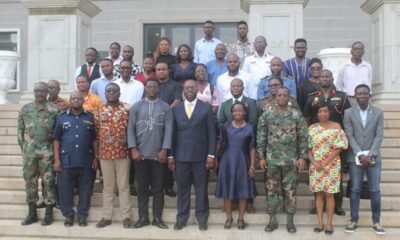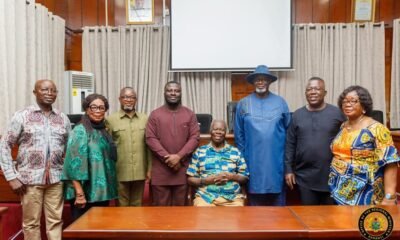News
Consume Made-in-Ghana chocolates- Madam Abla Dzifa Gomashie
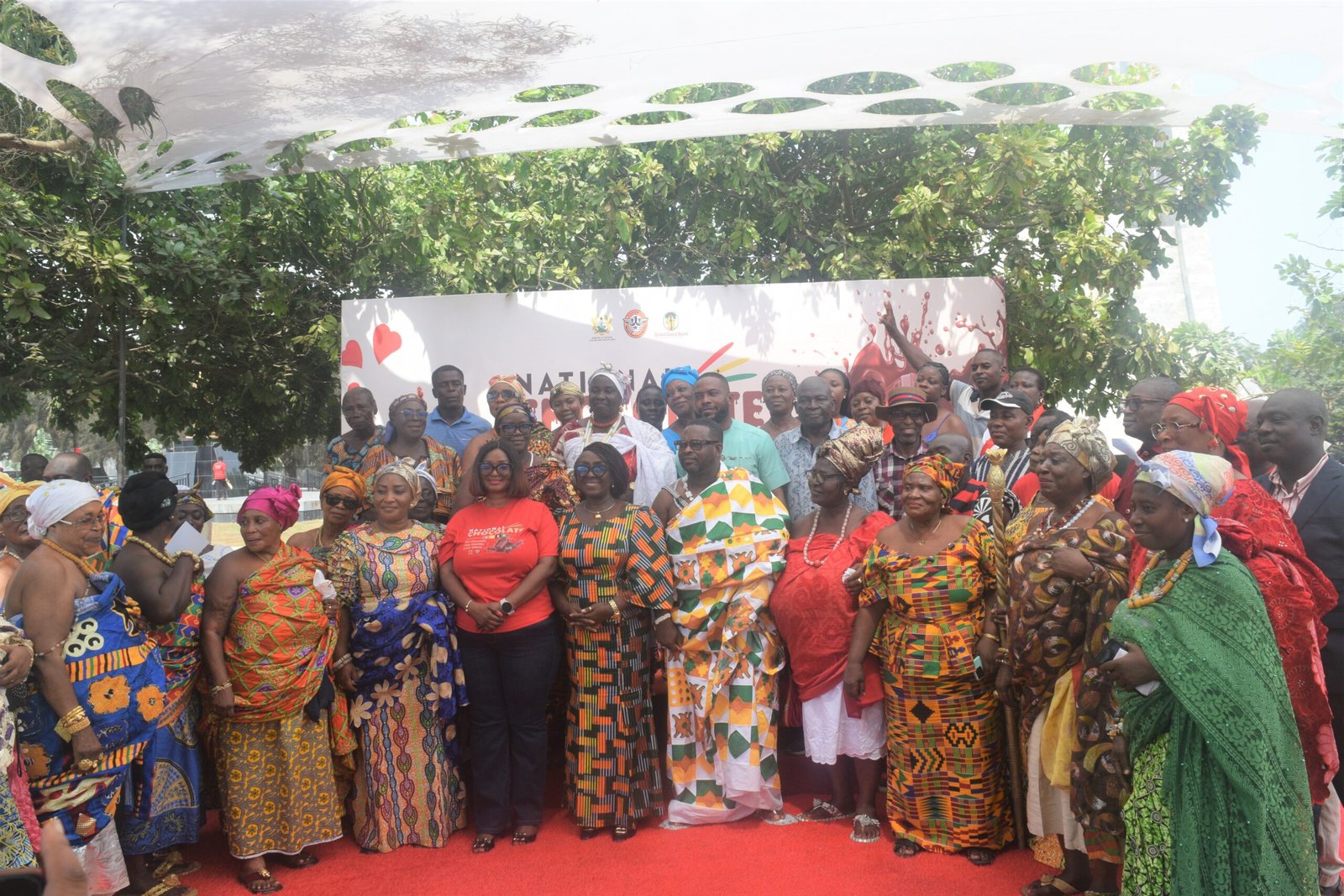
She noted that the programme had helped to reshape the celebration of Valentine’s Day in Ghana by leveraging chocolate as a symbol of love, providing a longer period of engagement, and increased awareness.
Mrs Houadjeto said as local consumption of Ghanaian chocolate was being promoted, it would enhance domestic tourism, social cohesion and create jobs for the youth.


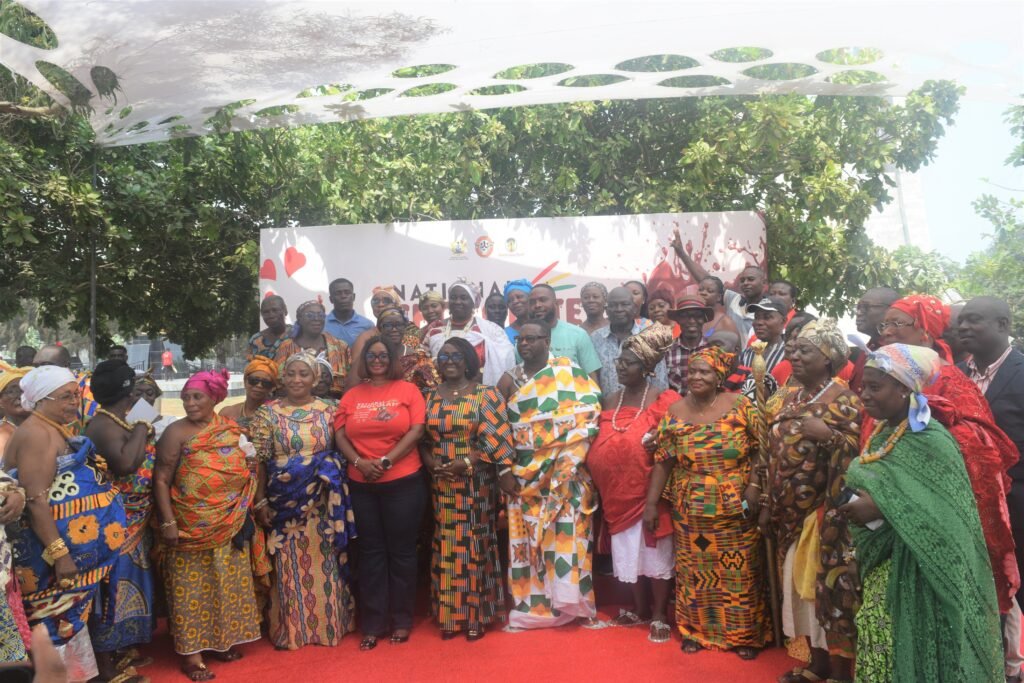
She stated that “cocoa is a stress reliever, helps to reduce blood pressure, improves the blood flow to the brain and boosts brain function, acts as a stimulant, and a natural aphrodisiac.”
She called on stakeholders in the entire value chain to continue to promote the consumption of chocolate and cocoa-based products, adding: “It must be continually nurtured and promoted to attract both national and international attention and participation.”



By Jemima Esinam Kuatsinu
News
MTN Ghana Foundation, Regional Blood Bank organise blood donation exercise
The MTN Ghana Foundation, in partnership with the Eastern Regional Blood Bank, has organised the annual blood donation exercise to mark the Valentine’s Day celebration.
The exercise took place at the Manya Krobo Senior High School in the Lower Manya Krobo Municipality, and was on the theme: ‘Safe blood saves lives.’
The student donors were taken through a health checklist, including age, blood level, and weight to ensure health safety before donation, and after which they were provided with milk, milo, and other foods to replenish their blood.
Mr Ransford Gyan, the MTN Ghana Sales Manager for Eastern, Volta, and Oti regions, told the Ghana News Agency that the foundation had a target of about 6000 people partaking in the blood donation exercise across the 16 regions.
“Our belief is that we will get the target set this year to assist in easing the country’s blood shortage. Donating blood is a benevolent act of solidarity, why don’t you join the effort and help save lives,” he quizzed.
He said at the initial stage of the blood donation exercise introduced by the MTN Ghana Foundation, it was limited to MTN staff but now opened up to the society.
Ms Philomina Quayson, Eastern Regional Blood Bank Donor Organiser at the Regional Hospital, said, “Blood is an essential commodity in the hospital because it helps patients who have accidents, surgeries, or medical conditions.
So, I encourage individuals to save lives by visiting any government hospitals to donate blood.”
She said persons 17 years and above, who are free from health conditions such as sickle cell and hypertension could donate.
She urged the public to donate blood as it was good and safe.
Master Kingsley Nartey, a student of Manya Krobo Senior High School, said, “Today is my first time to participate in this exercise and I was panicking but after going through the processes, I realised it was not painful and scary.” —GNA
News
Recognise, appreciate sacrifice of GAF, key reason for nation’s peace, stability —Defence Minister
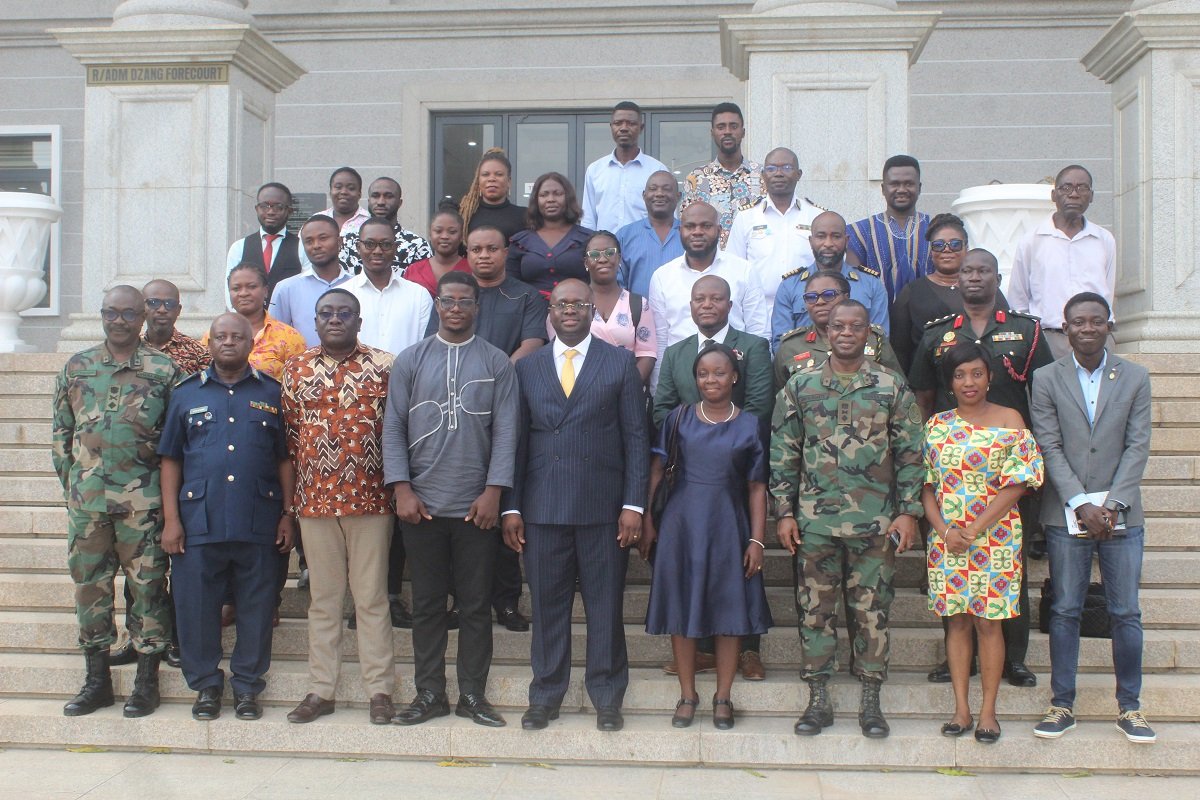
The Defence Minister, Dr Edward Omane Boamah, has called on Ghanaians to recognise and appreciate the sacrifices of the Ghana Armed Forces (GAF), emphasising that their dedication is the key reason for the nation’s peace and stability.
Dr Boamah made the remarks during his maiden interaction with members of the Defence Press Corps (DPC) in Accra on Monday.
The Defence Minister urged Ghanaians to support and respect the Armed Forces, highlighting their contributions beyond combat roles. He cited instances where military engineers have provided rapid solutions to infrastructure challenges, such as bridge construction for isolated communities.
“Our soldiers work tirelessly, often behind the scenes, to ensure national security. Their role in disaster response, peacekeeping, and infrastructure development must be recognised and appreciated,” Dr Boamah added.
The Minister also highlighted the government’s resolve to complete all ongoing military infrastructure projects, some of which dates back to 2010.
He stressed the need to cultivate a culture of finishing existing projects before embarking on new ones, noting that proper financing should always be secured to prevent project abandonment.
“We must learn to complete projects as much as possible. When financing is unclear, projects remain unfinished, which should not be the case,” Dr Boamah stated.
He also mentioned innovative financing strategies, including leveraging climate funds for infrastructure projects that contribute to environmental sustainability, such as transitioning to energy-efficient lighting systems in military installations.
Addressing the housing deficit within the armed forces, Dr Boamah disclosed that the military requires about 17,000 additional housing units. He discussed various strategies, including potential public-private partnerships (PPPs) and mixed housing models, where some personnel may be deliberately integrated into civilian communities to enhance security while maintaining a strong presence in the barracks.
“There are advantages when security personnel live among civilians, as it deters crime. However, we must also maintain a significant standby force within the barracks to ensure rapid deployment when necessary,” he explained.
Dr Boamah expressed concern over the devastating effects of illegal mining (galamsey) on Ghana’s environment, particularly water bodies. He revealed that pollution levels in some areas have reached unprecedented levels, making water treatment extremely difficult.
“The Ghana Armed Forces is ready and willing to assist the government in addressing environmental challenges. We need a collective effort to combat the illegal mining menace,” he said.
By Jemima Esinam Kuatsinu






